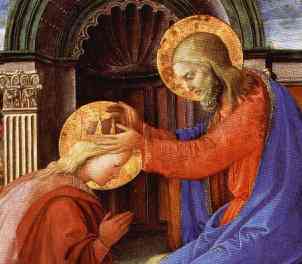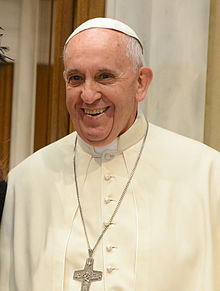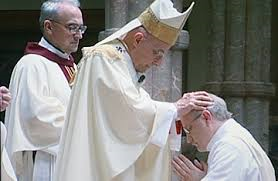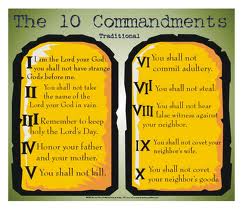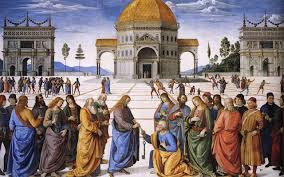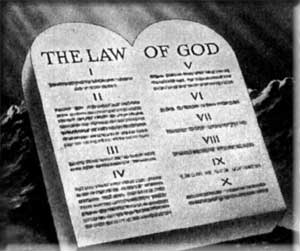Muslim Metaphysics (Pt. II in Series)

Since the attack on the World Trade Center, the Pentagon, and four commercial jet airplanes on September 11, 2001, and the accompanying loss of thousands of lives in what was the largest attack against the United States of America since Pearl Harbor, we have heard more about Islam in the U.S. (and perhaps in the West in general) than we’ve probably heard on a popular level in our entire 200+ years of existence as a nation. And unfortunately, we hear much conflicting information.
From some quarters we hear “Islam is a religion of peace! It was just a few fanatics who abuse Islam that caused what we saw on Sept. 11!” In fact, we hear, “The very word itself (Islam) means peace!” Of course, this is not actually true. “Islam” means “submission.”
But is this the truth? Is Islam a religion of peace? And, if not, what is Islam a religion of? We are going to be talking about this and much more over my next several blog posts.
As I said in my last blog post, there is much Catholics can agree with when we speak of Muslim theology. CCC 841, quoting the Dogmatic Constitution on the Church, Lumen Gentium 16, from Vatican II, declared:
The plan of salvation also includes those who acknowledge the Creator, in the first place amongst whom are the Muslims; these profess to hold the faith of Abraham, and together with us they adore the one, merciful God, mankind’s judge on the last day.
CCC 841 also references Vatican II’s Declaration on the Relation of the Church to Non-Christian Religions, Nostra Aetate, 3, that makes the teaching of the Council even clearer:
The Church regards with esteem also the Moslems. They adore the one God, living and subsisting in Himself; merciful and all-powerful, the Creator of heaven and earth, who has spoken to men; they take pains to submit wholeheartedly to even his inscrutable decrees, just as Abraham, with whom the faith of Islam takes pleasure in linking itself, submitted to God.
We need to emphasize here that inasmuch as Islam acknowledges God is one, they are right. God is absolutely one in essence. And as such, Muslims are closer to us as Catholics than, say, Hindus who worship many Gods (at least some Hindus) and Buddhists who do not believe in God at all (at least some Buddhists).
What is the Koran?
I am going to be citing a large number of verses from the Koran. When I do, I will cite them as “Surah” and then a number, and then a verse number. The Koran is divided up into 114 Suras of unequal length. The longer Suras are generally placed first [sura 2 is the longest] in a series of descending length with a few exceptions to this general arrangement.
Many non-Arabic speakers do not realize that the Suras are further subdivided into ayat (verses) that are rhymed metrical sections of prose which can be as short as three verses or as long as 200 or more verses. Each ayah (singular form of “ayat”) has its own meter and rhyme pattern. The original ayat were put together into Suras without regard to chronological relation or thematic development. Scholars both Muslim and non-Muslim have proposed various arrangements which represent the true historical or chronological order down through the centuries without any complete agreement or consensus ever being established or determined.
The “surah” in the Koran is sort of like a chapter in the Bible, although the longer ones are more like books in the Bible.
While, as a rule, I am going to mainly be sticking to the Koran itself as far as my quotations go, I will at times also refer to the “Hadiths,” so we need to understand that the Hadiths represent the official tradition of Islam. They are the traditional “sayings” of Muhammad. You also have the Sunnah, which are the traditional “acts” of Muhammad as well, but I will not refer to them.
Who is God?
I will begin in Sura 112 in the Koran, which answers the question, “Who is God?” According to many Muslim scholars, “This Sura is held to be worth a third of all of the Koran.” It says:
In the name of God, Most Gracious, Most Merciful. Say: He is God, The One and Only; God, the Eternal, Absolute; He begetteth not, Nor is He begotten; And there is none Like unto Him.
God is absolutely One. He is all majesty and sovereign. In fact, the unforgivable sin in Islam is the “sin of shirk,” or assigning partners to God. The Koran makes very clear:
God forgiveth not [the sin of] joining other gods with Him; but He forgiveth Whom He pleaseth other sins than this: one who joins Other gods with God, Hath strayed far, far away [From the Right]” (4:116).
As we will see in coming posts, this verse is aimed specifically at Christians. According to the Koran, we Christians are guilty of “the sin of shirk” in declaring Jesus to be God! Stay tuned for more on this!
The Key for now is understanding this belief in God’s absolute unity and majesty is central to Islam. In Islam, God is absolute “master” (Rabb, in Arabic), and men are absolute slaves (Abd, in Arabic). God is so absolutely transcendent that he is believed to be “beyond being” and “unknowable.” According to Muhammed Abdul Rauf (Islam Creed and Worship, Washington D.C.: the Islamic Center, 1974, p. 2-3), one of the 13 attributes of God along with “Existence, Eternity, Perpetuity… Self-Sustenance, Unity, Might, Will, Knowledge, Life, Hearing, Sight, and Speech,” is “dissimilarity.”
As Catholics, we also believe in God’s attribute of “dissimilarity.” For example, when God is revealed as “Father,” CCC 239 says, “No one is father as God is father.” Any and all attributes of God are infinitely beyond what we can only know of them by analogy this side of heaven. However, in Islamic thought dissimilarity is taken to another level. God is absolutely dissimilar to us meaning God’s essence is either non-existent, or absolutely unknowable. It cannot even be known by analogy.
But what about the famous 99 names of God found all over the Koran, especially in Sura 5, and in Islamic tradition? Pope St. John Paul II refers to them in his book, Crossing the Threshold of Hope (pg. 92). Do they not tell us something of God’s essence?
Actually, the answer is no.
God’s essence is beyond us. The names are based on what God does, not on who he is. We cannot know who he is. The Koran reveals pure will. And even the Will of God revealed in the Koran tells us nothing of God’s Will as it is in itself, because even God’s will, per se, is inscrutable!
This is a crucial point: You cannot know God in Islam. In Christianity, this is the very reason why we were created! As St. Augustine said it, “Thou hast made us for thyself and our hearts are restless until they rest in thee.”
And remember this: When I say, “We cannot know God, I mean never. Not even if we make it to Muslim paradise. We will never know God or His Will except by what he has commanded us in the Koran. But again, this tells us nothing of his nature as it is in itself.
This lack of understanding of God leads to all kinds of theological and moral problems. For example, In Surah 3 we read, “If you love God, follow me, and God will love you and forgive your sins.” Sounds good, right? However, in the same breath the Koran then says, “God does not love the unbelievers” (Sura 3:32). We, as Catholics, know God cannot do anything but love because “God is Love” (I John 4:8), but in Islam, we cannot know the essence of God! He is purely the Master (Rabb) and we are slaves (abd) and we obey his commands because he says so. It is no contradiction for Muslims to say God loves some and hates some. Neither are rooted in God’s nature (if he has one at all). They are absolutely arbitrary.
Moreover, because God is “beyond being” and has no essence then he can command anything and we must obey it. This false notion of God leads to a lack of understanding of metaphysics and to a kind of nominalism. There are no essences in Islam. God has no essence, nor does man. Actions have no essence either. So if God says to kill a village of men and sell their women and children into slavery, you do it! If “God” told a Christian to do that, the Christian would say, “Get thee behind me Satan!” because a Christian would know that is not God!
Ramifications and Contradictions
The ramifications of this kind of metaphysics are staggering. Man has no essence; hence there could be no “original sin,” or an understanding of “fallen man,” and that man has a “fallen nature,” because there is no “nature” to fall. There is no understanding of “grace,” or “sanctifying grace,” that we Catholics often take for granted. In Islam, everyone is judged purely by what he or she does. As Catholics, of course, we believe we are judged in accord with our works as well, but there is no sanctifying grace or state of grace in Islam. Muslims teach our works will be “weighed on a scale” and if our good deeds outweigh the evil, we will be admitted to “paradise.”
As Catholics, we hear of the suicide bombers on 9/11 frequenting strip clubs, and being with prostitutes, while claiming to be devout Muslims, and say, “How can this be?” But in Islam, the scale would be tipped by their “heroic” act of killing thousands of “infidels,” so why not?
Moreover, because actions have no essences, adultery is not wrong because it is contrary to the essence of conjugal love. It is wrong because Allah says so in the Koran.
Think about it: So if the Koran says we should beat our wives (it does, we will quote it in a future post) marry four wives and have as many slave girls as we can provide for (it does), then that makes it okay!
So God is absolute majesty, absolutely dissimilar and unknowable. He is Master (Rabb) and we are slave (Abd). This leads to a belief in the absolute predestination of all things (especially among the Sunni who represent 85% of Muslims). God is so absolutely almighty that free-will is unthinkable. Nothing happens that is not willed by Allah. Allah wills both good and evil directly!
Norman Geisler points out on page 29 of his book, “Answering Islam,” quoting a text from the “Hadiths,” or, “sayings” of Muhammad:
While we were sitting in company with the Apostle of Allah upon whom be Allah’s blessing and peace-and a group of his companions, Abu Bakr and Umar entered through one of the gates of the mosque. With them was quite a large body of people disputing with loud voices, the one contradicting the other, till they came to the Apostle of Allah… Said he… “What is it you are disputing about that causes you to raise your voices so and make such a clamor?” “It is about the decree,” they answered. “Abu Bakr asserts that Allah decrees good but does not decree evil, but Umar says that He decrees both alike.” Muhammed replied. “The decree necessarily determines all that is good and all that is sweet and all that is bitter, and that is my decision between you.” Then he slapped Abu Bakr on the shoulder, and said: “O Abu Bakr, if Allah Most High had not willed that there be disobedience, He would not have created the Devil.” Abu Bakr replied: “I seek pardon from Allah. I slipped and stumbled, O Apostle of Allah, but never again will I fall into error about this matter.”
One can see the problems that come from this Islamic view of God, Man, and the relationship (or lack thereof) between God and man.
1. God predestines all things, wills both good and evil! As Sura 37:94 says, “He [Allah] created you as well as what you do.” In Islam, there was no creation of man in perfection. God created him inclined to evil and willed him to sin!
If this is true then we should really add to the names of God, “The Evil One!” Think about it. If what we know about God and what we name him comes from what he does and not from his essence, then, if he does evil…
2. We cannot know God or the Will of God as it is. His will revealed in the Koran is arbitrary. This can lead to accepting the word of Satan as the word of God. “God” could tell Muhammad to do anything and he would do it, including killing, taking slaves and slave concubines, etc. More about that to come, folks! But more importantly, this belief that God is unknowable thwarts the very reason for our existence!
3. There are no “essences.” Therefore, there is no “nature” to man. There is no original justice, original sin, or “fall.” This leads to God being the creator of Satan as evil. As an aside here, Satan was not an angel to most Muslims. He was a “Jinn.” “Jinn” are rational beings in between angels and men (this is where the mythical “Jeannie in a bottle” comes from. The plural of “Jinn” is “Jinni.” “I Dream of Jeannie” owes its existence as a TV show to Islam!) Sura 72:11 says jinn have free-will; hence, they can do good or evil, while angels cannot. They are good and can only do good.
Sura 18:50 says Satan is a Jinn. Incidently, it is interesting to note a glaring contradiction in Sura 38:71-77 which speaks of the first sin of Satan. He sinned because he would not bow before Adam! Yet, in Islam, you bow before no one but Allah! In essence, Satan was condemned by God for trying to be a good Muslim and refusing to bow before a man! This apparent contradiction is explained by Muslim scholars in different ways. Some say Satan was living in a different dispensation so it was okay back then to bow to potentates. Some say when bowing to men, Satan would have actually been bowing to Allah in a final sense.
But there is another inherent contradiction here. Adam was created to sin, and, in fact, almighty God caused him to sin. This belief is, again, rooted in Islam’s notion of God’s omnipotence, but yet, they will say that Jinn do have free will. What happened to God’s omnipotence in that case? Also, if God creates men imperfectly and even causes them to sin, this becomes a very distorted notion of God metaphysically. In all of their emphasis on the majesty of God, they end with a God who is imperfect. An infinitely perfect God cannot create moral defect in any sense. As Catholics, we believe God created men and angels with their own proper perfections, which includes the perfection of free will. In other words, free will is entirely good and is a perfection. The abuse of that freedom belongs entirely to the creature. Muslim scholars say creation of anything means necessarily that they are imperfect. Because if they were perfect, they would be God! But this is incorrect. Created beings are not infinite, but they do possess their own proper perfections. God can’t do that? Certainly he can! God creates angels with perfect natures that only do good, according to the Koran, but this does not mean they are on a par with God!
At any rate, with this as a basic underpinning of Islamic metaphysics, we can understand many of the contradictions and much of the confusion that comes from the world of Islam. It is a metaphysically empty religion that cannot save, and, in fact, does not believe we need to be saved. More about that in coming posts!
If you liked this post, and would like to learn more, click here.
